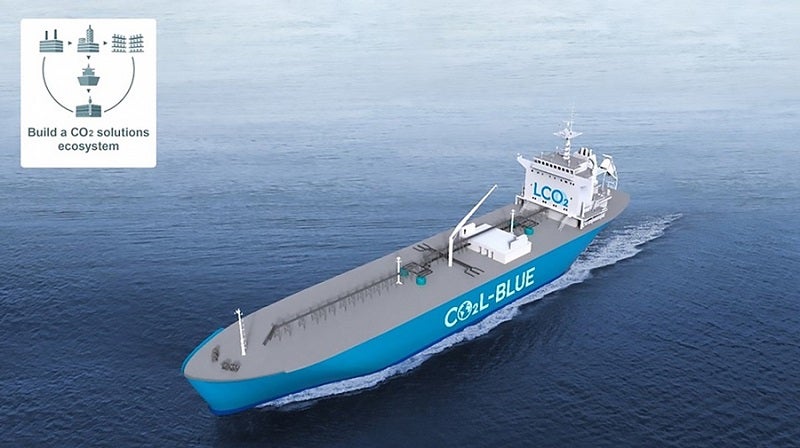
Mitsubishi Heavy Industries (MHI) Group’s Mitsubishi Shipbuilding unit has collaborated with French company TotalEnergies to commence a feasibility study on the development of a liquefied CO₂ (LCO₂) carrier.
Through its strategic efforts for energy transition, MHI Group is working towards creating a decarbonised society.
For achieving decarbonisation, the maritime industry has been focusing on carbon dioxide capture, utilisation and storage (CCUS).
The demand for LCO₂ carriers is projected to rise in the coming years, as they would help in carrying carbon from its emission sources to storage facilities or sites for utilisation.
Japan’s Mitsubishi Shipbuilding aims to commercialise LCO₂ carriers, with this project anticipated to contribute towards the establishment of a CO₂ ecosystem.
By integrating the knowledge of the two companies, MHI seeks to contribute to the construction of the CCUS value chain, which will cover both land and sea.
How well do you really know your competitors?
Access the most comprehensive Company Profiles on the market, powered by GlobalData. Save hours of research. Gain competitive edge.

Thank you!
Your download email will arrive shortly
Not ready to buy yet? Download a free sample
We are confident about the unique quality of our Company Profiles. However, we want you to make the most beneficial decision for your business, so we offer a free sample that you can download by submitting the below form
By GlobalDataTotalEnergies CCUS vice-president Bruno Seilhan said: “We are pleased to partner with Mitsubishi, whose expertise in shipbuilding is well proven, in order to study large tonnage LCO₂ carrier opportunities.
“Such vessels will be key to accommodate the expected surge in transported CO₂ volumes for geological storage triggered by the acceleration in net-zero carbon targets worldwide and to meet world industrial emitters’ needs. It is fully aligned with our Climate Ambition to get to net-zero emissions by 2050.”
Mitsubishi Shipbuilding president Toru Kitamura said: “We believe that LCO₂ carriers are an effective solution for achieving a decarbonised world.
“We will continue to actively pursue technology development in cooperation with partners seeking to achieve decarbonisation using LCO₂ carriers, with the aim of market formation for the CCUS value chain.”
Furthermore, MHI Group stated that it will “continue to develop and offer a wide range of technologies” associated with the LCO₂ carriers through the joint project with TotalEnergies.
Last month, Mitsubishi Shipbuilding launched the first of two large multi-role response vessels that are being constructed for the Department of Transportation in the Republic of the Philippines.







